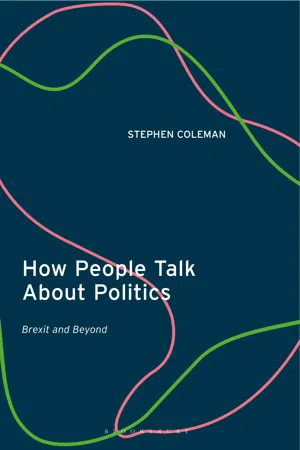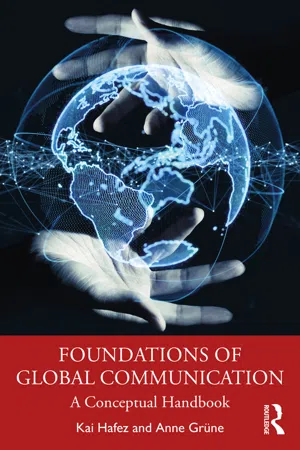Politics & International Relations
Symbolic Speech
Symbolic speech refers to nonverbal communication that conveys a message or idea. This can include actions, gestures, clothing, or other forms of expression that are protected under the First Amendment of the United States Constitution. Symbolic speech is often used in political protests and demonstrations as a way to express dissent or support for a particular cause.
Written by Perlego with AI-assistance
Related key terms
Related key terms
1 of 4
Related key terms
1 of 3
3 Key excerpts on "Symbolic Speech"
- eBook - ePub
Political Skill at Work: Revised and Updated
How to influence, motivate, and win support
- Gerald R. Ferris, Pamela L Perrewe, Darren Treadway, Charn McAllister, Parker Ellen(Authors)
- 2020(Publication Date)
- Nicholas Brealey Publishing(Publisher)
Symbolic behavior is an important part of how reputations are created and maintained, and business leaders and politicians alike work hard at manipulating symbols to create the perception that they are powerful. Their resulting power is based less on reality than on appearance—but perception is reality in many cases, especially where suggestions and implied desires can be taken as commands. Symbolic communication is thus probably most effective in ambiguous working environments, which put most emphasis on the leaders’ interpretations of events.Through language, communication, and symbolic behavior, managers can switch the focus of their performance evaluation from outcomes to behaviors or simply render outcomes and behaviors indistinguishable. We argue that people tend to judge others by their goals, by what they are trying to do, and not by what they accomplish. If this is so, then leaders can orchestrate situations to their advantage through the strategic use of symbolism, language, and rhetoric. This led Jeffrey Pfeffer to conclude that political language is often effective because people are judged by their intent, by the outcome they are seeking, rather than by what they are actually doing.Nonverbal Communication and Strategic EmotionIn addition to what you say, the way you say it—your facial expressions, nonverbal behavior, and the emotions you choose to demonstrate—can represent important and influential mechanisms of influence. Of the several processes that constitute strategic nonverbal influence, impression management is the most relevant, and nonverbal behavior plays a key role in forming impressions. Politically skilled individuals are the most successful at the effective execution of nonverbal communication because they present it in the most genuine and convincing manner.The use of expressed emotion as a source of strategic influence is an important part of everyday life, particularly so on the job. You laugh at the boss’s jokes whether or not you find them amusing; you sometimes feign anger with a coworker or sadness with a subordinate to strategically convey a certain image that will influence the reactions you receive. When things go wrong, you might act more distressed than you feel—even crying if it would be socially acceptable for you to do so—to divert wrath, thus making a strategic display of emotion designed to temper the response. - eBook - ePub
How People Talk About Politics
Brexit and Beyond
- Stephen Coleman(Author)
- 2020(Publication Date)
- I.B. Tauris(Publisher)
Subjective dispositions towards the world and one’s position within it play an important part in determining whether and when it feels right to speak. But such dispositions constitute a much more intractable barrier to political articulation for some people than for others. Those who have grown used to the expectation of being heard; who have been schooled to believe that their voices will probably count; and who fall into the narrow social category from which members of the political elite tend to be recruited are least likely to experience awkward, shameful or immobilizing dissonance between how they feel and how they speak. The terms of admissible political talk seem designed to reflect their ways of feeling the world. The very pitch, pace and volume of their speech declare a belief that how they feel should be made known. Others are much less comfortable engaging in the kind of message-oriented speech in which political beliefs are conventionally couched. They are often unconfident about translating their feelings – commonly judged to be raw, vulgar, fickle and unmanageable – into words, fearing that the latter might expose or betray them. Just as ‘proper expression’ is a mark of political distinction (to use Bourdieu’s term), the risk of being exposed as improper leads some people to adopt strategies of self-exclusion from the political sphere, while others – most notably populists – refuse to engage in inter-discursive translation, believing, instead, in the efficacy of collective rage as an end in itself.Faced with an urge to speak out, complain, contest claims or put things right, people are frequently compelled to translate between their conditioned sense of weakness in the face of greater powers and an imagined sense of themselves as articulate beings, capable of translating their affective impulses into socially appreciated utterances. Quite often such putative translation is played out in silent, counterfactual thought: ‘This is what I would say if I were to say it. This is how I would say it if I were to be able to say it that way’. Much political talk takes place within these voiceless rehearsal spaces of the mind, in which free expression is unmediated by explicit social judgement.Third, because political talk is by definition a social interaction, those who engage in it are compelled to orient themselves towards the cultural atmosphere within which they speak. This entails reading the social mood; having an idea about what seems to matter to other people; possessing a sense of how public events, trends and emotions seem to connect to one another; distinguishing between commonplace, controversial and outlandish values; knowing where to find like-minded thinkers; being able to tell the difference between the vital and the incidental. The notion of social mood ‘provides a way to articulate the shaping and structuring effect of historical context on our affective attachments’ (Flatley, 2009 : 19; Highmore, 2013 - eBook - ePub
Foundations of Global Communication
A Conceptual Handbook
- Kai Hafez, Anne Grüne, Alex Skinner(Authors)
- 2022(Publication Date)
- Routledge(Publisher)
Pious 2001 ). Diego Gambetta articulates the fundamental problem of the greater openness to interpretation of political signals compared to language:It is fortunate that Kennedy and Khrushchev did not mistakenly interpret the other side’s actions during the Cuban Missile Crisis as a declaration of war.Signaling theory tackles a fundamental problem of communication: how can an agent, the receiver, establish whether another agent, the signaler, is telling or otherwise conveying the truth about a state of affairs or event which the signaler might have an interest to misrepresent? And, conversely, how can the signaler persuade the receiver that he is telling the truth, whether he is telling it or not?(2009 , p. 168)Global governance as a diplomatic “hotline”?
Traditional diplomatic communication can create global communality, but it is anarchic, unpredictable and risks war. A “hotline” of diplomatic communication through functioning transnational institutions, as envisaged in the concept of global governance, would not abolish states as such, but would do away with processual phases of negotiation, such as the interplay between negotiation and signalling. Global governance would be more than mere global crisis communication. In addition to occasional references to “negotiation theory” (Benz and Dose 2010 , p. 33), representatives of this school call above all for “structures of communication and cooperation designed for the long term” that would be conducive to “dialogue and understanding” in order to facilitate “complex learning” – because “simple learning”, as found in traditional diplomacy, amounts to conforming to existing regulatory systems but is incapable of transcending them and harmonizing them on an enduring basis (Messner 2005 , pp. 48, 51). Other authors advocate new spaces for “global communication and interaction” in order to enable “collective thought processes” that cannot arise through established multilateralism alone and are conceivable only on a transnational basis (Begemann et al. 1999
Index pages curate the most relevant extracts from our library of academic textbooks. They’ve been created using an in-house natural language model (NLM), each adding context and meaning to key research topics.
Explore more topic indexes
Explore more topic indexes
1 of 6
Explore more topic indexes
1 of 4


